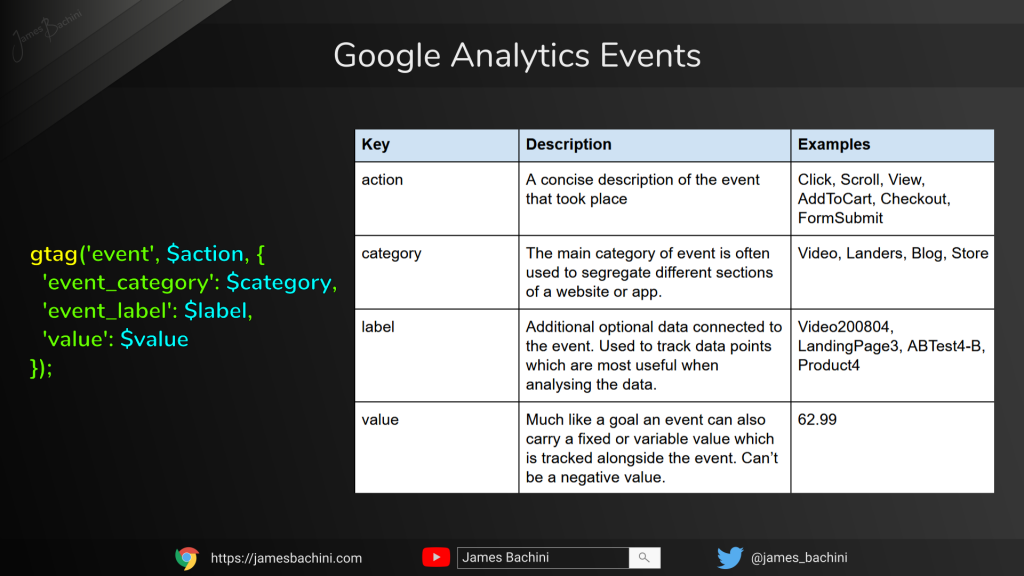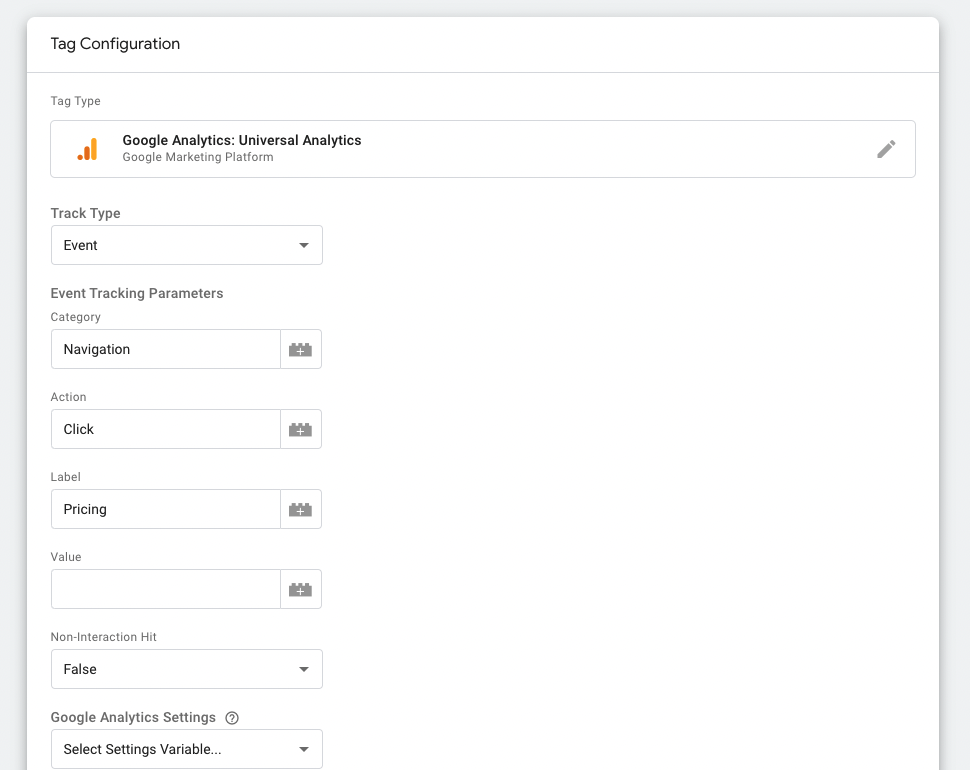9 Easy Facts About Google Analytics Event Tracking Explained
Table of ContentsThe 6-Minute Rule for Google Analytics Event TrackingGoogle Analytics Event Tracking Can Be Fun For EveryoneGoogle Analytics Event Tracking Can Be Fun For AnyoneHow Google Analytics Event Tracking can Save You Time, Stress, and Money.10 Easy Facts About Google Analytics Event Tracking ExplainedGoogle Analytics Event Tracking Can Be Fun For Everyone

If you're going to establish up event monitoring manually, after that you're going to have to include some extra code to the components you intend to accumulate data from. The code you're mosting likely to work with will look something such as this: There are four elements within that code fragment that you're mosting likely to need to define yourself: occasion, Classification, event, Activity, event, Label and occasion, Worth.
As you can see, two of these are required (classification and action) while tag and value are optional. It all relies on the kind of information you desire passed on back to Google Analytics when an individual clicks the defined component (Google Analytics Event Tracking). It will certainly be a lot easier to specify these components if you analyse your internet site and decide which elements/actions you want to track
All about Google Analytics Event Tracking
Now, you'll be asked to define the and and you'll intend to pick from the drop-down food selection that shows up when you click. This will certainly raise the exact same event tracking components we checked out earlier, which you'll require to fill in. When you've defined these, you can move down to the second box and choose the trigger that will certainly discharge your tag.
On the following screen, you'll likewise have a field for calling your trigger and, if you click the box, you'll see a list of the different triggers you can choose. In this situation, we intend to pick and after that choose the option below. Then you'll establish the trigger to just fire when an aspect is clicked with an URL which contains the.
Easy - Occasion monitoring! Event tracking offers learn the facts here now you a photo of just how individuals engage with your site and company. Check out on as we check out whatever you need to recognize, including what it is, why you need to track events, how to take care of events data, and various other relevant FAQs you might have.
All About Google Analytics Event Tracking
You can switch in between your occasion groups, activities, and tags in the Top Events report. The Occasion Pages record shows the pages where events are triggered.
It reveals you the course they take as they move from one event to the following and assists you to identify which content engages your target market one of the most. Occasions in Google Analytics have four main aspects. They are also a component of the occasion tracking code. Google Analytics makes use of these codes to track user communications and team them into occasion records.
A checklist of the criteria you can track on your web site is on the. After inspecting all necessary areas, you can click "X" to close the window and return to the Overview food selection on the.
Top Guidelines Of Google Analytics Event Tracking

If you haven't done so, you may need to set up a variable in the Google Analytics Setups box. After this, enter your GA monitoring ID in the Monitoring ID area.
To do this, adhere to the next collection of activities: After my response setting up the areas, choose the "Triggering" section. When configuring your new trigger, click the "+" button, after that web link the "pencil" button, then select your trigger type.
Indicators on Google Analytics Event Tracking You Should Know

When it comes to recognizing which areas and components are leading clients through your conversion funnel, you still won't know. Without occasion monitoring, GA reports will just count brows through as single-page sessions, also if individuals invest a great deal of time on one page and engage with it considerably (and a bounce).
But just how does event monitoring accomplish this?Single-page sessions referred to as bounces begin and end on the very same web page. Without occasion monitoring, GA will certainly categorize a customer's browse through as a bounce if they do not navigate to one more web page, regardless of exactly how they engage with it. As an example, a video-rich page can have a greater bounce price if occasions are not tracked.
About Google Analytics Event Tracking
For GA to take event hits right into account when gauging bounce prices, you need to select "Non-interaction occasion" as "False" during the GTM configuration. Establishing "occasion objectives" with occasion action is a superb means to maintain track of customer tasks you worth very, such as brand-new lead entries or click a phone call to action.